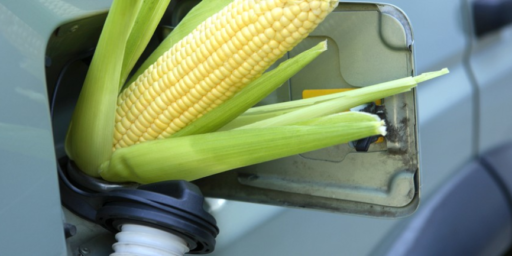The Doha Round Collapse
The Doha Round of trade talks have collpased. This is bad news for many people around the world. In the past we have had nonsense spouted by people about ending world poverty with silly notions, but trade liberalization is one sure fire way to help alleviate poverty.
This is a tragedy, especially for the developing world. Last year, the World Bank estimated that global gains from trade liberalisation would equal roughly $287 billion, of which $86 billion would accrue to developing nations, lifting at least 66m people out of poverty. Activist groups including Greenpeace and Oxfam were quick to condemn both Washington and Brussels for intransigence over agricultural subsidies, saying that rich-world self interest is leaving the poor to suffer.
Over at QandO John Henke has a very apt take on the situation,
What’s more, we’re actually paying tens of billions of dollars in agricultural subsidies per year — mostly to big businesses — in order to keep these people from selling us food at lower prices–italics in the original/bold added.
Precisely. Instead of getting rid of the agricultural subsidies, savings billions each year in distortionary taxes/subsidies and helping people in poverty around the world, we just keep on forking over all that corporate welfare.






There are many people who are relieved that the Doha Round talks failed. And why not? They are the small farmers and agricultural companies that need the U.S. government and taxpayers’ help to stay in business. For whatever reason the US government subsidizes the agricultural business, but not other industries like automaking or IT. I say, if you can’t cut it in business, why be in business?